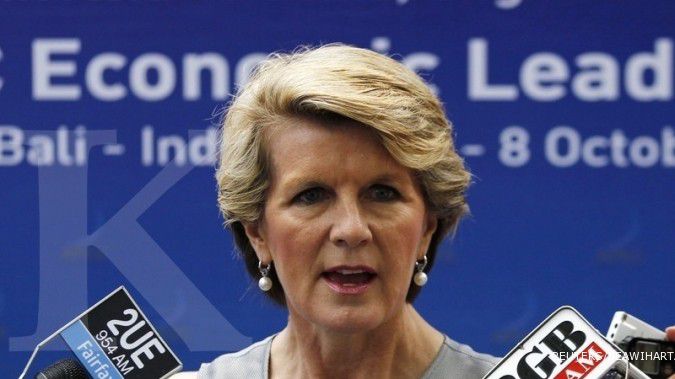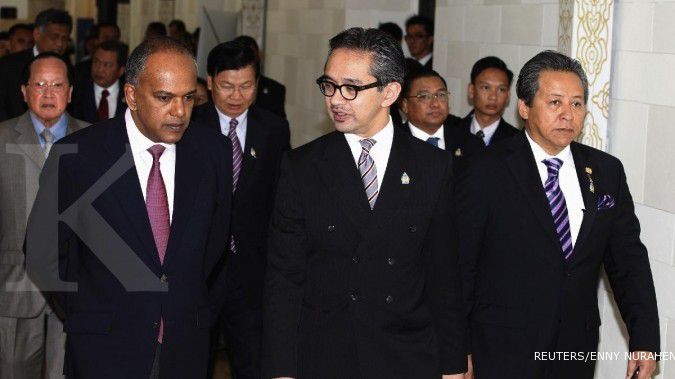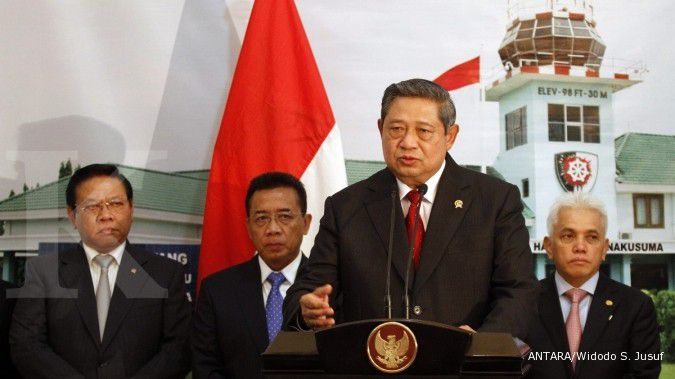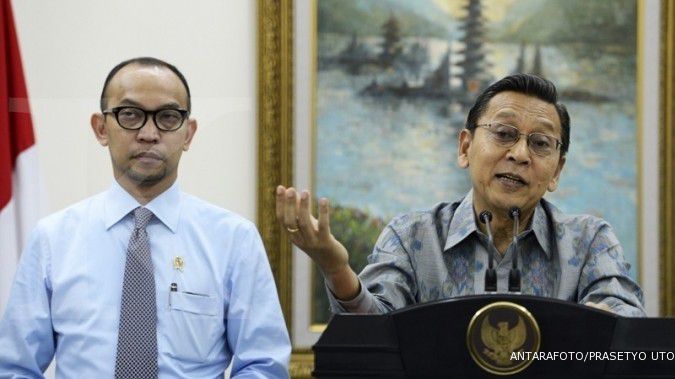JAKARTA. During his meeting with visiting Australian Foreign Minister Julie Bishop on Thursday, Foreign Minister Marty Natalegawa made no effort to hide that Indonesia was in no rush to return relations to normal after revelations of Australia’s suspected wiretappings of President Susilo Bambang Yudhoyono and his wife in 2009.
In a joint press conference with Bishop, Marty pointed out that progress in restoring relations between the two countries would depend much on the commitment of the Abbott government to accommodate Indonesia’s demands.
“The ball is on the Australian side [of the court] because it all depends on the core problem: how to rebuild mutual trust,” said Marty.
The most concrete result of their two-hour meeting was that they agreed to set up a special communication or “hotline”.
Bishop believed it would be needed “to ensure that we can resolve any issues in the implementation [of suspended cooperation] that we can avoid any unintended consequences. I believe that is an appropriate way forward”.
Bishop avoided responding to public demands in Indonesia that Canberra apologize for the incident. “We regret the events that led to the situation and the hurt caused to President Yudhoyono and the Indonesian people,” she said.
Bishop made it clear that the Australian government agreed to the six-point road map laid out by Yudhoyono as a precondition before the two neighboring nations’ relations could return to an even keel.
“We note the steps set out by President Yudhoyono that must be taken in order to normalize the relationship, and of course we agree to those steps,” the Australian minister said.
In their meeting, the two ministers agreed to set up a “special communication channel” to be used to help ease problems if the temporary suspension of cooperation has negative impacts.
Yudhoyono decided to suspend cooperation in the areas of military and defense, joint-patrols against boat people, as well as intelligence and information sharing with Australia, resulting in the two neighboring nations’ relations plunging to their lowest since the late 1990s.
“The suspension of the three areas of cooperation remains, pending full pursuit of the six-point road map. At the same time, we have agreed to set up a good system of communication so that we are able to fully inform one another and anticipate any technicalities or other impacts following the temporary suspensions,” Marty noted.
At least three boats have managed to make it to Australia since Jakarta decided to end cooperation on boat people last week, The West Australian reported.
The boats were intercepted by Australian authorities and the passengers transferred to Christmas Island.
An official with the Foreign Ministry said the flow of vessels carrying boat people could increase after February next year, when weather on the waters between Indonesia and Australia became calmer.
“The ball is always on Australia’s side. Everything pretty much depends on Australia,” Marty reiterated when asked about restoring the two countries’ relations. Besides visiting Indonesia, Bishop will also fly to the Philippines and China. (The Jakarta Post)
/2013/10/04/643833393.jpg)













